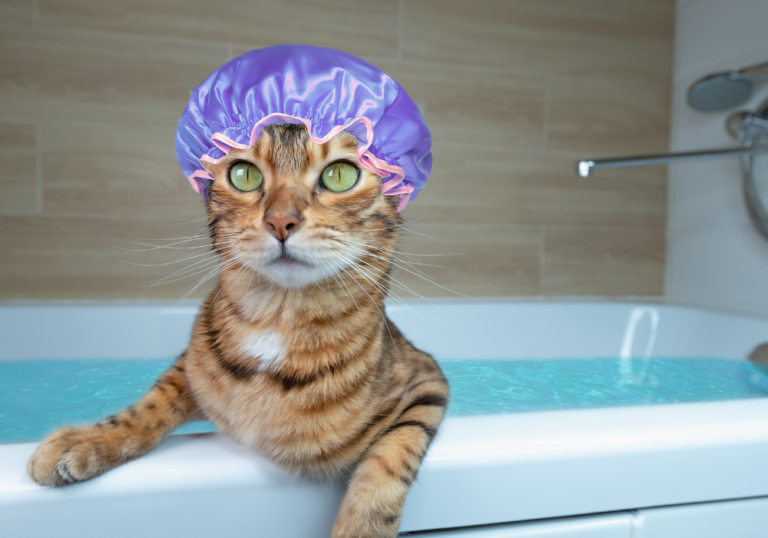Does Your Cat Need a Bath? Understanding Feline Grooming Needs

As a cat owner, you may wonder whether your feline friend needs a bath. While you might find bathing to be a relaxing experience, most cats view it very differently. In fact, the mere sight of water can send your pet scurrying for safety under the nearest bed. But are there situations where a bath is necessary for your cat?
When Should You Bathe Your Cat?
Most cats are adept at grooming themselves, thanks to their unique self-cleaning mechanisms. With tiny hooked structures called papillae on their tongues, cats can effectively remove dirt and debris while distributing natural skin oils to maintain a sleek, glossy coat. In fact, cats often spend up to 50% of their day grooming themselves, making baths unnecessary for the majority of felines.
However, there are specific situations where bathing your cat may be warranted:
1. Grooming Alone Won’t Get Your Cat Clean
If your cat has rolled in something sticky or smelly, or if it’s gotten into a mess that could be harmful if ingested (such as paint or certain chemicals), a bath may be required.
2. Your Pet Has Long Hair
Long-haired cats may struggle to groom themselves effectively, leading to mats and tangles. Periodic baths can help improve their coat’s condition, but if your cat is particularly dirty, a thorough wash might be in order. If you notice fecal matter stuck to your long-haired cat’s fur, a quick clean of that area can be beneficial.
3. Your Cat Doesn’t Have Any Fur
Hairless cats require special attention, as their skin can accumulate oils that would normally be absorbed by fur. Bathing your hairless cat once or twice a week can help maintain skin health by removing excess oils.
4. Grooming Is Difficult
Cats that are elderly, overweight, or suffering from arthritis may find it challenging to groom themselves adequately. Additionally, cognitive issues like dementia can affect a cat’s grooming habits, making a bath necessary at times.
5. Your Cat Has Fleas or Other Pests
A bath can help eliminate fleas, mites, and other pests. However, before using any flea shampoo or treatments, consult our doctors at Acacia Pet Hospital to ensure that the product is safe for your cat.
6. Someone in Your Home Is Allergic to Cats
Bathing your cat can help reduce allergens such as saliva and dander—two common triggers for allergic reactions. While the effects of bathing are temporary, it can provide some relief. Just be sure not to bathe your cat more than once a week, as frequent baths can lead to dry skin. In between baths, consider using baby wipes to clean your cat’s fur and reduce allergens.
Conclusion
While most cats are naturally skilled at keeping themselves clean, there are specific circumstances where a bath may be necessary. Always consider your cat’s individual needs and consult our doctors at Acacia Pet Hospital for guidance on how to best care for your feline friend.
If you need more help or have any questions, call us at Acacia Pet Hospital, acaciapetclinic.com, (408) 264-6354, 4486 Pearl Ave, San Jose, CA 95136,
Hours: Monday-Friday: 8:00 am – 5:00 pm.
By understanding your cat’s grooming habits and when a bath may be necessary, you can ensure that your beloved pet stays clean and healthy without the stress of frequent baths.

